Modern health conversations are buzzing with one central theme: Gut health and digestive wellness. From bloating and low energy to weakened immunity and mood swings, poor digestive function could be the hidden culprit. Emerging science confirms what ancient traditions always knew—a healthy gut is the foundation of overall well-being.
In this comprehensive guide, we’ll explore what gut health means, how to improve your digestive wellness, and why taking care of your microbiome can transform your life from the inside out.
🔍 What Is Gut Health and Why Does It Matter?
Gut health refers to the function and balance of the entire gastrointestinal (GI) system—from your mouth to your stomach, intestines, and colon. The star of this system is the gut microbiome, a complex community of trillions of microorganisms (bacteria, fungi, viruses) living primarily in your intestines.
When in balance, your gut:
- Helps digest and absorb nutrients
- Regulates hormones
- Boosts immunity
- Produces neurotransmitters like serotonin
- Fights inflammation and disease
But when it’s imbalanced (a condition known as dysbiosis), it can lead to problems like:
- Constipation, bloating, gas
- Skin conditions (acne, eczema)
- Fatigue and brain fog
- Autoimmune issues
- Anxiety and depression
🧬 Meet Your Microbiome: The Body’s Hidden Ecosystem
Your microbiome is like an internal rainforest—delicate, diverse, and essential. These microbes work in harmony to:
- Break down complex carbohydrates
- Produce vitamins (like B12 and K)
- Train the immune system
- Keep harmful bacteria in check
Factors that harm your microbiome:
- Antibiotic overuse
- Processed foods and sugar
- Chronic stress
- Lack of sleep
- Environmental toxins
Healing starts with restoring balance.
🍽️ The Best Foods for Gut Health
Your daily food choices directly impact the health of your digestive system. Here’s what to eat more of:
1. Prebiotic-Rich Foods
These are plant fibers that feed your good bacteria.
- Garlic
- Onions
- Leeks
- Asparagus
- Bananas
- Chicory root
2. Probiotic Foods
These introduce beneficial bacteria into your gut.
- Yogurt (with live cultures)
- Kefir
- Sauerkraut
- Kimchi
- Miso
- Tempeh
3. High-Fiber Whole Foods
- Oats, chia seeds, lentils, berries, leafy greens
Fiber helps clean the colon and feed healthy microbes.
4. Anti-inflammatory Fats
- Olive oil, avocados, nuts, flaxseed
These reduce gut lining irritation and aid nutrient absorption.
🚫 What to Avoid for Digestive Wellness
Certain foods disrupt gut bacteria and cause inflammation. Minimize these:
- Processed foods and refined carbs
- Artificial sweeteners (like aspartame and sucralose)
- Red meat in excess
- Fried or ultra-greasy foods
- Alcohol (especially in high amounts)
🧘 Lifestyle Habits That Support Digestive Health
Gut health isn’t only about what you eat. Your lifestyle plays a big role too.
✅ 1. Stress Less
The brain and gut are connected through the gut-brain axis. Chronic stress can lead to stomach issues and worsen IBS.
Tips:
- Practice deep breathing
- Try journaling or mindfulness meditation
- Get regular physical activity
✅ 2. Prioritize Sleep
Poor sleep disrupts your circadian rhythm, which affects digestion and bacterial balance. Aim for 7–9 hours nightly.
✅ 3. Stay Hydrated
Water helps break down food and absorb nutrients. It also prevents constipation.
✅ 4. Move Your Body
Regular exercise stimulates digestion and encourages healthy gut flora diversity.
💊 Gut-Boosting Supplements
While food is the best foundation, targeted supplements can give your gut a helpful push:
- Probiotics – Look for multi-strain, high CFU (colony-forming units)
- Prebiotics – Often combined with probiotics (synbiotics)
- Digestive Enzymes – Help break down proteins, carbs, and fats
- L-glutamine – Supports the intestinal lining
- Zinc carnosine – Heals gut barrier damage
Pro tip: Always consult your doctor or nutritionist before adding supplements, especially if you have underlying conditions.
⚠️ Common Gut Health Conditions
Understanding symptoms and their root causes can help you take action early.
- IBS (Irritable Bowel Syndrome): Gas, bloating, diarrhea, or constipation linked to stress and food sensitivities.
- Leaky Gut Syndrome: A damaged gut lining allows toxins into the bloodstream, causing inflammation and autoimmune issues.
- SIBO (Small Intestinal Bacterial Overgrowth): Excess bacteria in the small intestine, leading to bloating and nutrient malabsorption.
- GERD/Acid Reflux: A sign of poor digestion or low stomach acid—not always “too much” acid.
📋 Sample 1-Day Gut Health Meal Plan
Breakfast:
Greek yogurt with chia seeds, banana, and a drizzle of honey
Lunch:
Grilled salmon bowl with quinoa, steamed broccoli, avocado, and olive oil dressing
Snack:
Handful of almonds + apple slices
Dinner:
Lentil soup with sautéed kale and whole grain toast
Fermented pickles or kimchi on the side
Drink:
Plenty of water + optional chamomile tea after dinner
🧾 Final Thoughts
Gut health and digestive wellness are not trends—they’re the key to long-term vitality. By nurturing your microbiome with real food, reducing stress, and embracing holistic habits, you create a ripple effect that benefits every system in your body.
Whether you’re dealing with chronic bloating or looking to boost immunity and brain function, the path begins in your gut. Start small, be consistent, and listen to your body—it will thank you from the inside out.

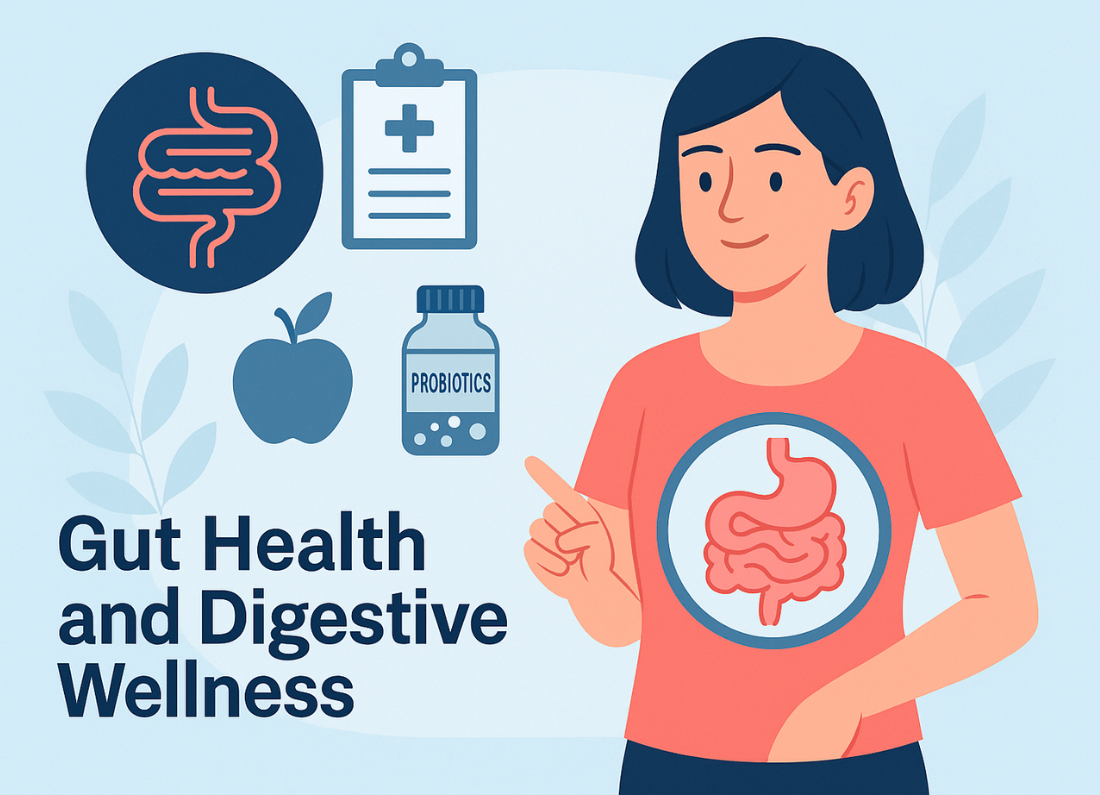

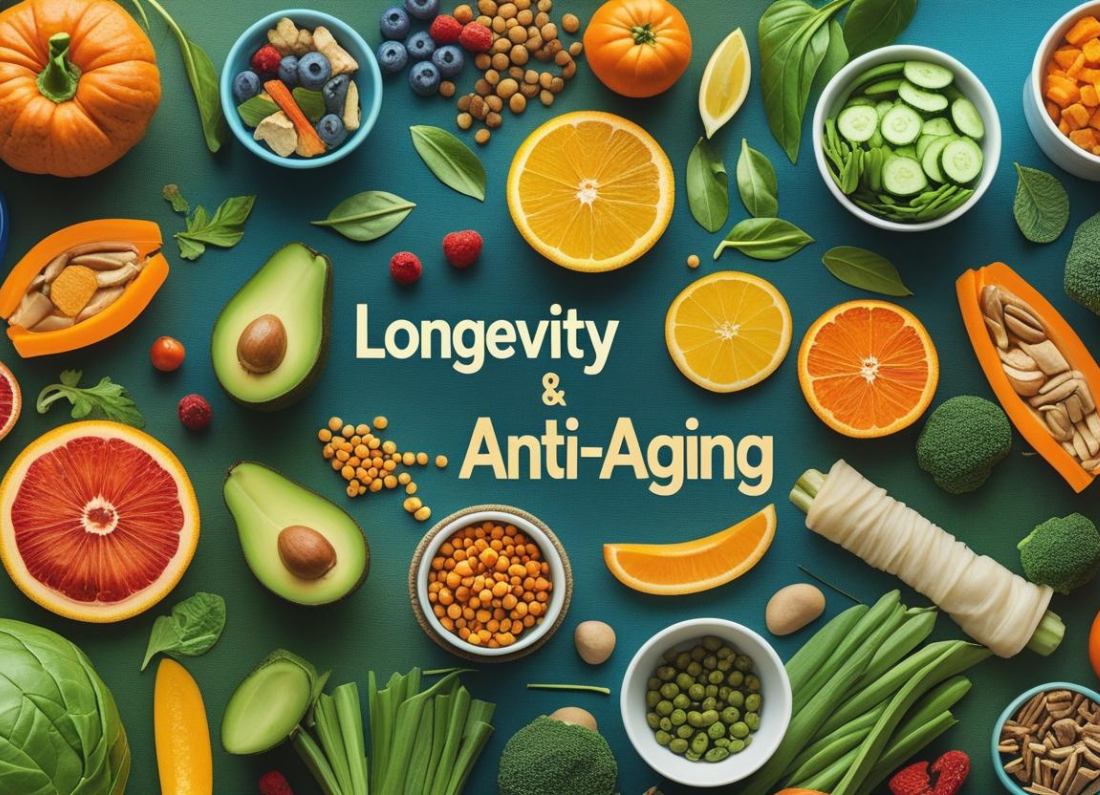
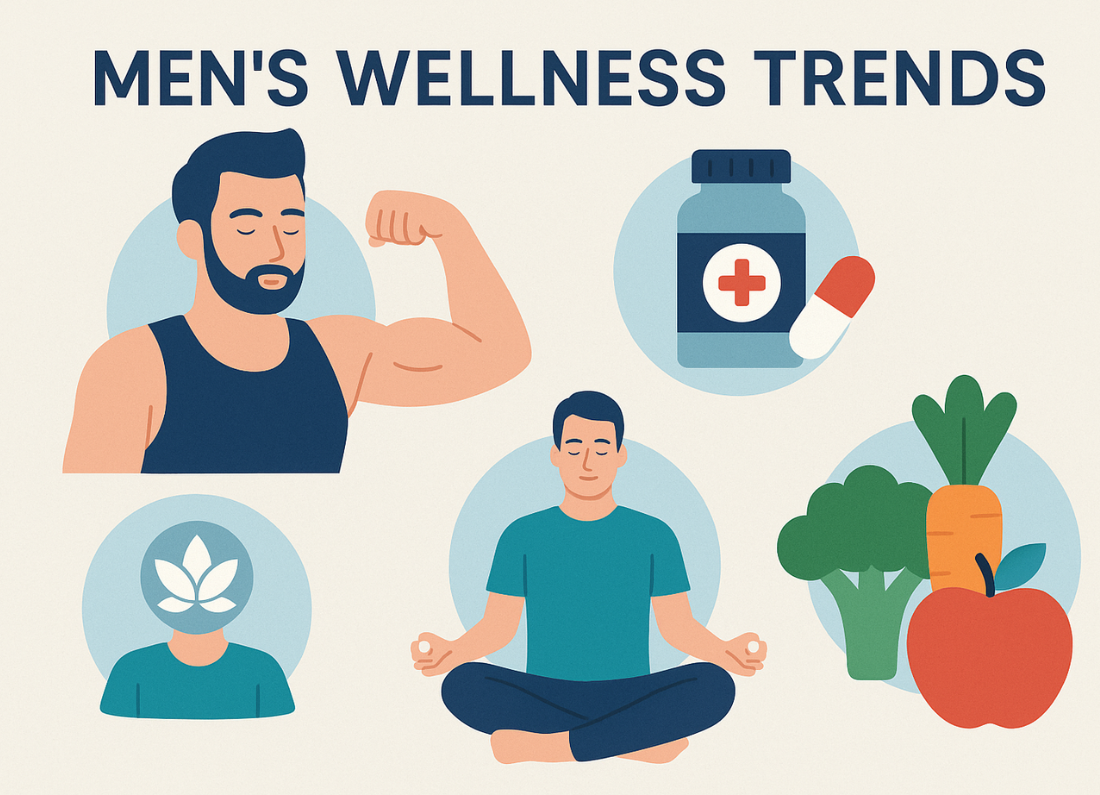

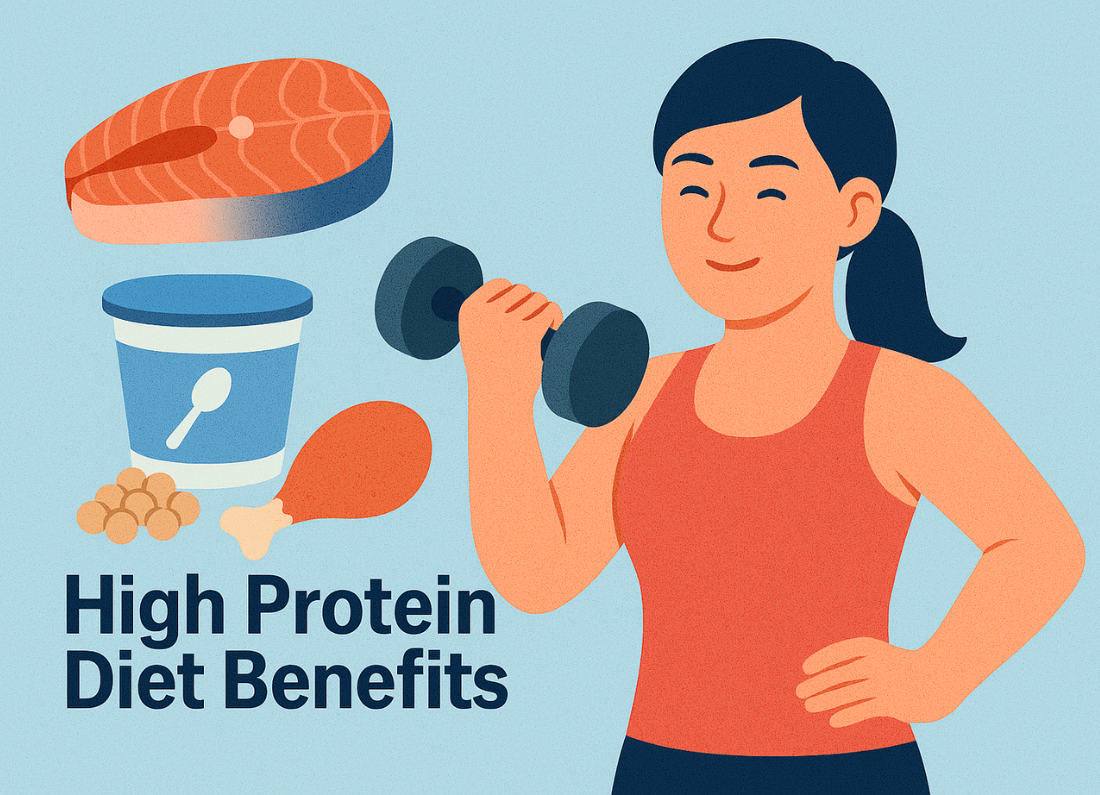
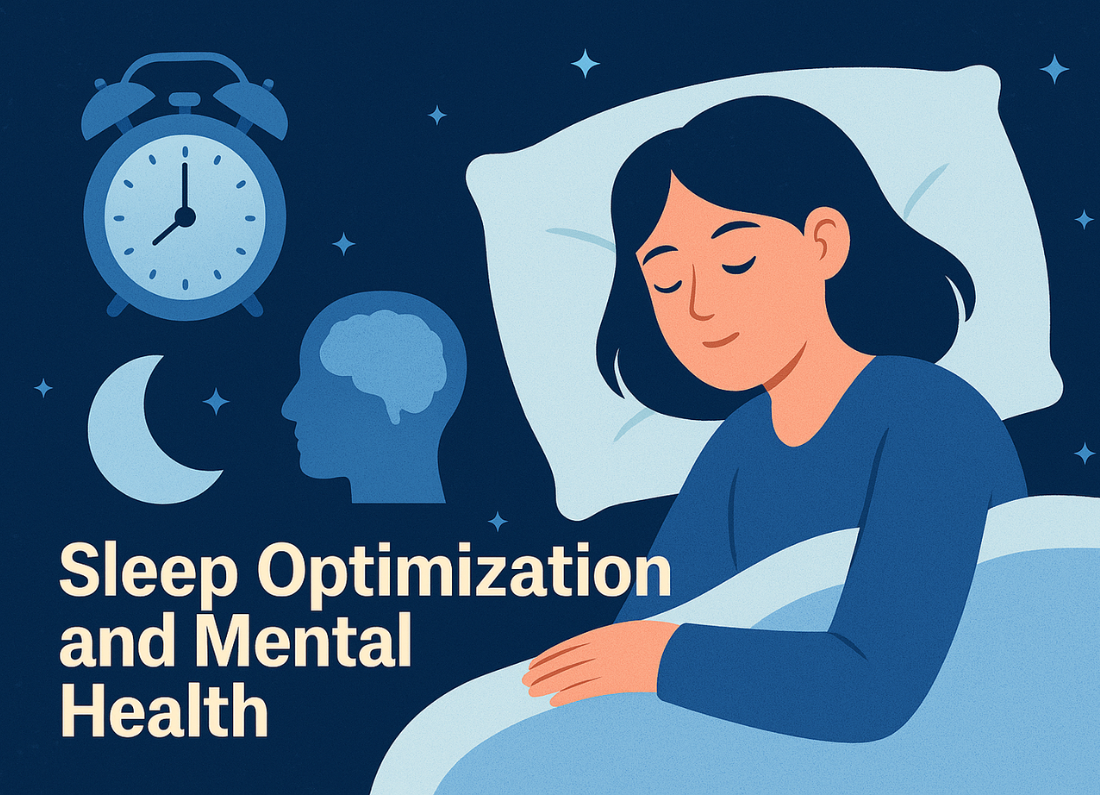

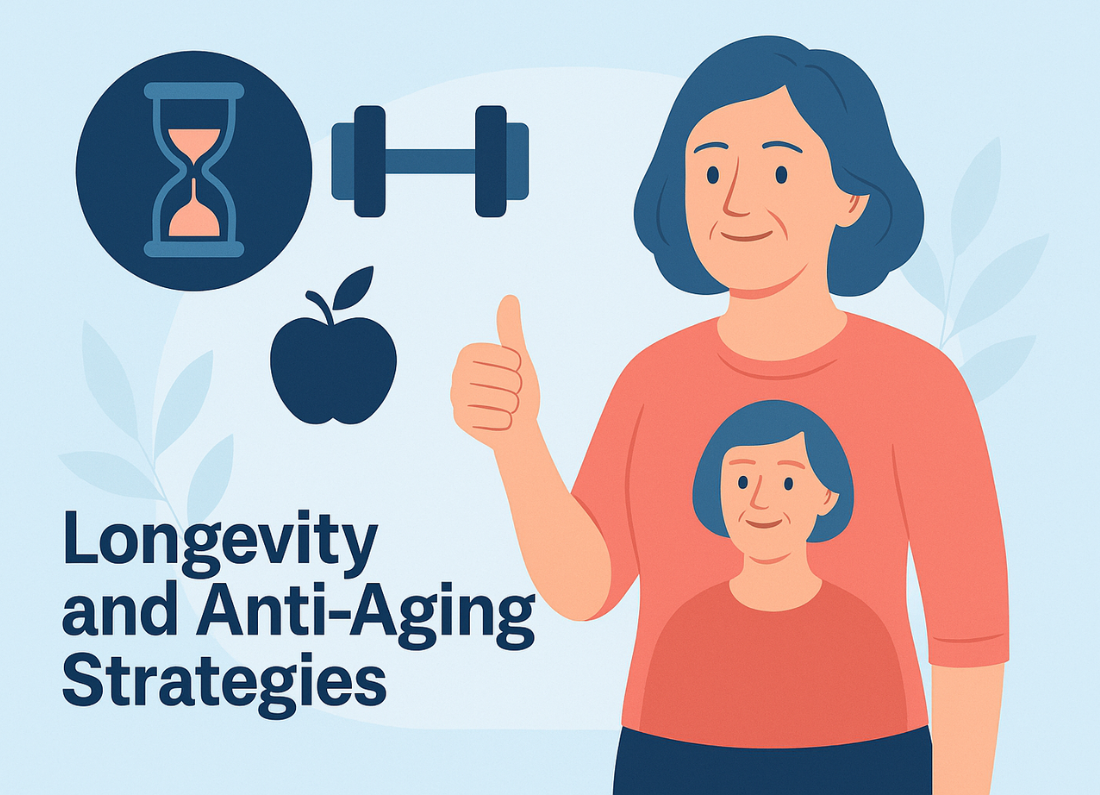





Leave a Reply